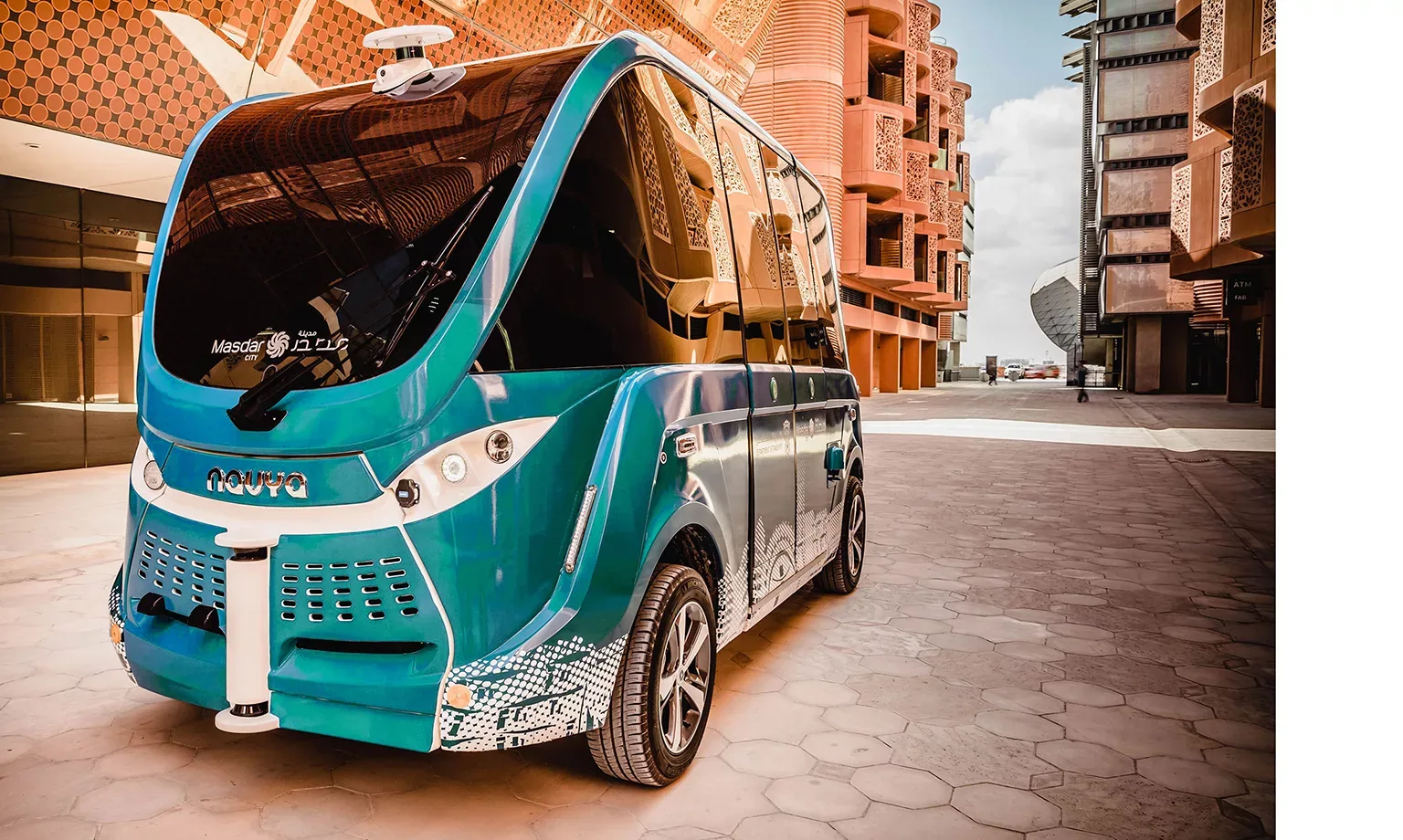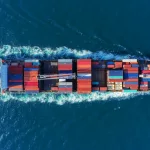As the quest for sustainable cities continues unabated, the inhabitants of Masdar City in the United Arab Emirates consider sustainability to be more than just a buzzword, but as an eco-oasis blueprint for the rest of the world.
CURBING URBAN IMPACT
Since the 1950s, the global population has been rapidly increasing, with rising life expectancy and urban migration driving the demand for sustainable cities, particularly in Europe and the Middle East.
By 2050, the number of people living in urban areas is expected to nearly double, presenting challenges such as overcrowding and limited resources, especially in developing countries. Therefore, new ways to promote sustainable human settlements and decrease urban sprawl by allowing people to live closer to their workspace are being explored.
Oslo, the vibrant capital of Norway, is one of the world’s most sustainable cities, renowned for its commitment to environmental stewardship while retaining its rich historical heritage.
In stark contrast, Masdar City in the United Arab Emirates (UAE) stands as a pioneering symbol of innovation, designed from the ground up to combat climate change and embrace renewable energy, creating a safe and secure habitat for future generations.
Rooted in the UAE’s legacy, Masdar City is located in Abu Dhabi, a global destination known for its technological advancements, thriving business ecosystem, and mix of modern and traditional architecture against the desert backdrop of the Arabian Gulf.
Built by Masdar, a subsidiary of the state-owned Mubadala Investment Company, Masdar City is sustainable in its design, combining an urban community with a hub for innovation and research.
Its Innovate for Climate Tech online platform aims to create an inclusive ecosystem by connecting start-ups, scale-ups, corporates, investors, and knowledge contributors, fostering a diverse global community.
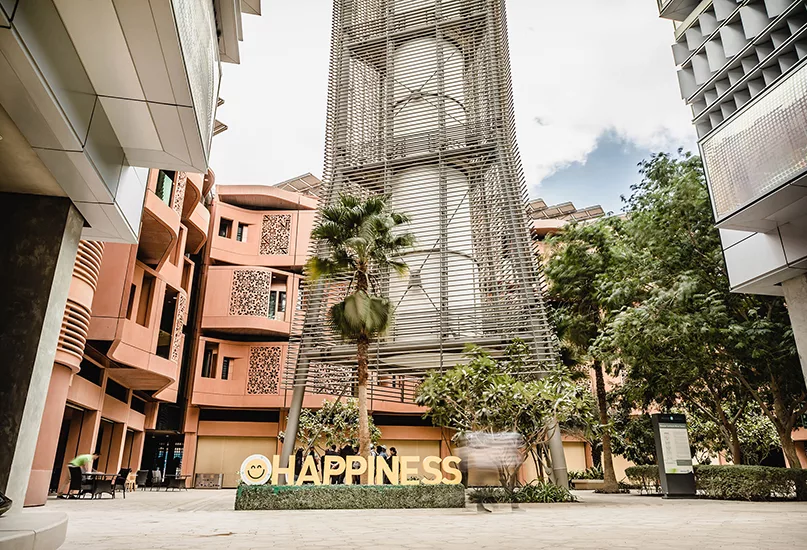
PASSIVE PLANNING
Weaving sustainability into Masdar City’s urban fabric entails designing every building, street, and public space to optimise thermal comfort, maximise energy and water efficiency, minimise waste, and reduce carbon emissions.
Masdar City is constantly evolving and redefining innovation while staying committed to sustainable architecture and a greener future. As such, every element is designed to address the climate, with the downtown area elevated on a seven-metre podium and oriented to capture prevailing desert winds and funnel them through narrow, shaded streets, reducing the temperature to 10 degrees cooler than downtown Abu Dhabi.
Optimal window to façade ratios adorn buildings, minimising solar gains with angled and structural shades protecting the glass, negating direct sunlight, which results in a dramatic reduction in energy-intensive air conditioning.
Local, renewable, and recycled materials are used in construction, with benches and other structures made from low-carbon concrete. Most of the aluminium in Masdar City is recycled, with just one-eighth of the carbon footprint of conventional virgin aluminium sheeting.
Additionally, timber is certified as sustainably sourced and steel reinforcing bars are made with scrap, meaning waste is diverted from landfills by reusing and recycling construction materials.
However, as a building’s sustainability is dependent on its occupants, they are therefore installed with highly efficient heating, ventilation, and air conditioning (HVAC) solutions, low-flow water fixtures, and advanced monitoring systems.
Sustainable urban design is at the core of Masdar City’s objectives, encompassing master planning, architectural design, construction, and operations to achieve the ultimate goal of net zero.
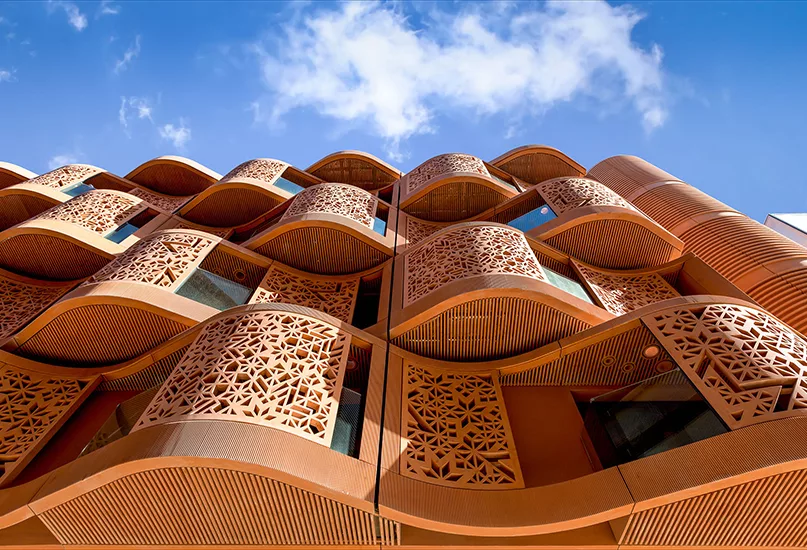
BULLDOZING BOUNDARIES
Recognising the importance of green spaces in urban areas for residents’ well-being and nature preservation, Masdar City features four public parks and plazas alongside eco-residences.
The city’s commitment to a sustainable future is divided into clusters, each playing a specific role. For example, the smart mobility cluster focuses on electric vehicles (EVs), efficient public transport systems, and innovative urban mobility solutions. These initiatives transform the city’s operations, reduce carbon emissions, and alleviate congestion.
Other clusters include life science, energy, Agri Tech, artificial intelligence (AI), and space technology.
The latter is particularly inspiring as it explores the vast potential of space for Earth observation, communication, environmental monitoring, data storage, and edge computing services in low-Earth orbit. This initiative is being pursued in collaboration with the UAE Space Agency and start-up Madari Space.
Furthermore, the Mohamed bin Zayed University of AI (MBZUAI), the Technology Innovation Institute (TII), Alesca, and the UAE Genome Project are based in Masdar City, driving progress in AI, predicting trends, and enabling endless possibilities.
Utilising technology for eco-friendly food production, from vertical farming to hydroponics and aquaponics, likewise ensures the city is cultivating a greener future.
Meanwhile, harnessing renewable resources such as solar and wind power means the energy cluster is dedicated to leading the charge and powering sustainability in Masdar City, while trailblazing companies are shaping healthcare through spearheading R&D, pushing the parameters of what is possible.
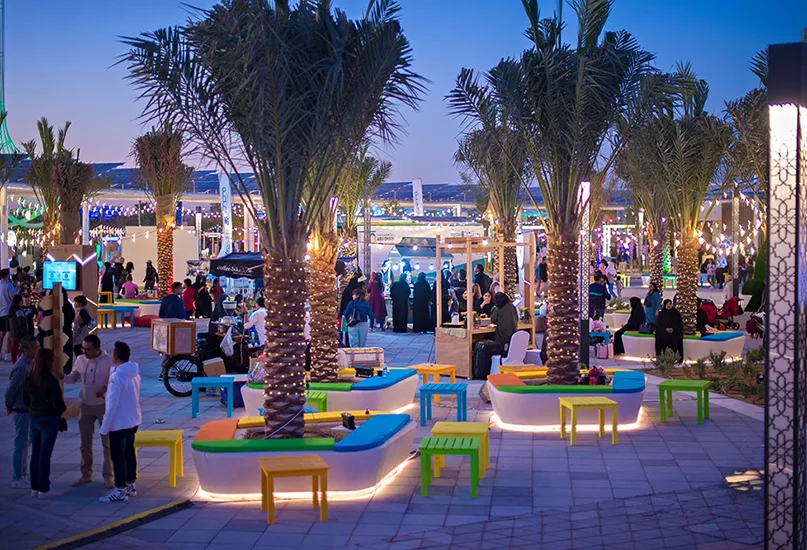
AN ENTICING AREA FOR ENTERPRISE
Continuously progressing, Masdar City aims to achieve net zero by 2050, therefore accelerating the UEA’s path to carbon neutrality as it was the first country in the Middle East and North Africa (MENA) region to make the commitment.
The journey towards this objective includes reducing energy and water demand in the built environment, harnessing renewable energy, and offsetting carbon emissions. Masdar City’s UAE Net Zero 2050 Strategy is working hard to make net zero the standard rather than the exception.
Moreover, Masdar City boasts the most sustainable free zone and business community in the UAE, making it a desirable location for companies seeking to establish themselves.
The Masdar City Free Zone, an essential technology and innovation ecosystem, comprises multinational corporations, educational and research institutions, and other businesses striving to create a better future.
The zone has zero percent import tariffs, cost-effective licensing, and seamless business support alongside 100 percent foreign ownership.
The city is also ideally located just a five-minute drive from Abu Dhabi International Airport, 20 minutes from downtown Abu Dhabi, and 45 minutes from Dubai, further attracting businesses to the area.
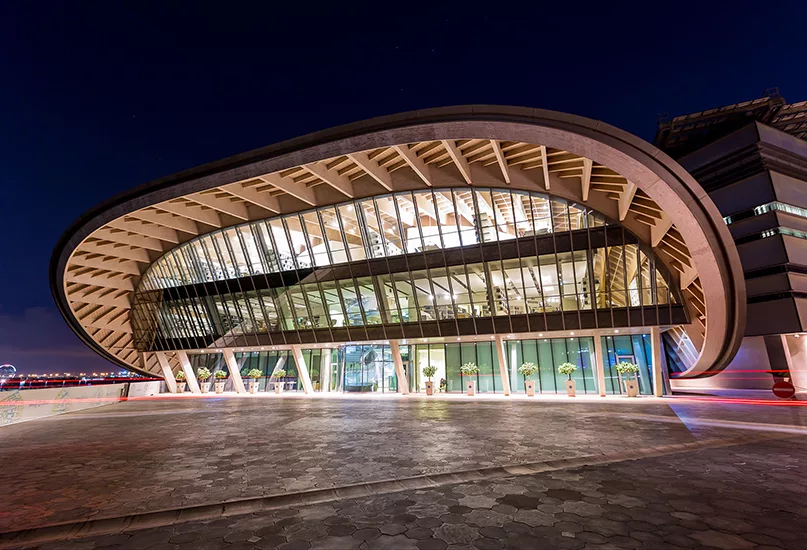
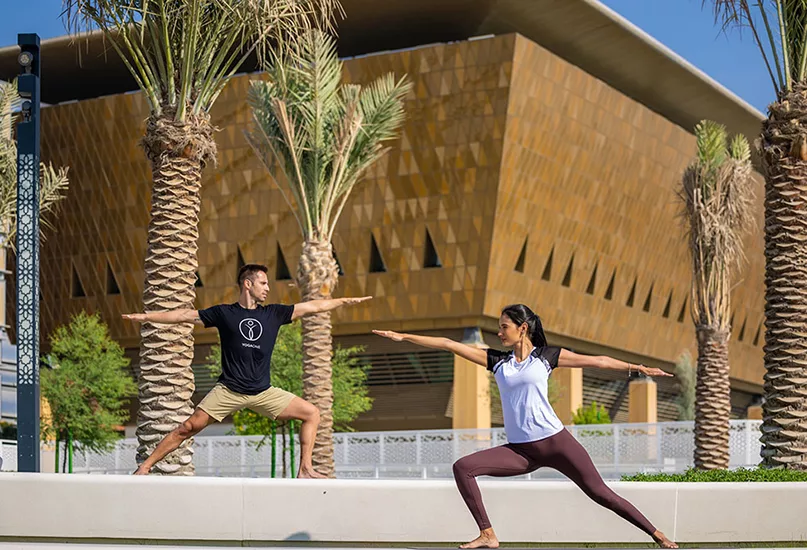
Offering customised workspaces and specialised offices in collaboration with Masdar City within a sustainable environment featuring diverse uses equally supports the growth of the corporate, retail, residential, recreational, educational, and healthcare sectors in an environmentally conscious urban setting.
As a result, the Masdar City business community can look forward to several projects come to fruition in the next 18 months. Currently on the horizon is The Link, a cluster of five commercial and residential buildings scheduled for completion in 2025 that will house offices, retailers, communal spaces, and residences.
The development’s focal point is the CO-LAB building, a net zero energy-shared working and living space that is the first of its kind in the region. All five buildings are on track to receive LEED Platinum, WELL Gold, and Estidama 4-Pearl ratings.
Construction has also begun on Masdar City Square, which boasts the same credentials as The Link and is set to open this year. The square is comprised of seven commercial buildings and has been designed to create a sense of common purpose.
Masdar City Square’s headquarters, the first net zero energy corporate building in Abu Dhabi, features a distinctive canopy of 1,033 photovoltaic (PV) panels, which provide shade and generate renewable energy.
Sustainable cities serve as the hubs of economic growth in numerous countries. With over half of the world’s population residing in urban areas and 70 out of 100 people expected to do so in the near future, metropolitan areas such as Masdar City have the potential to usher in a new era of sustainable development.



